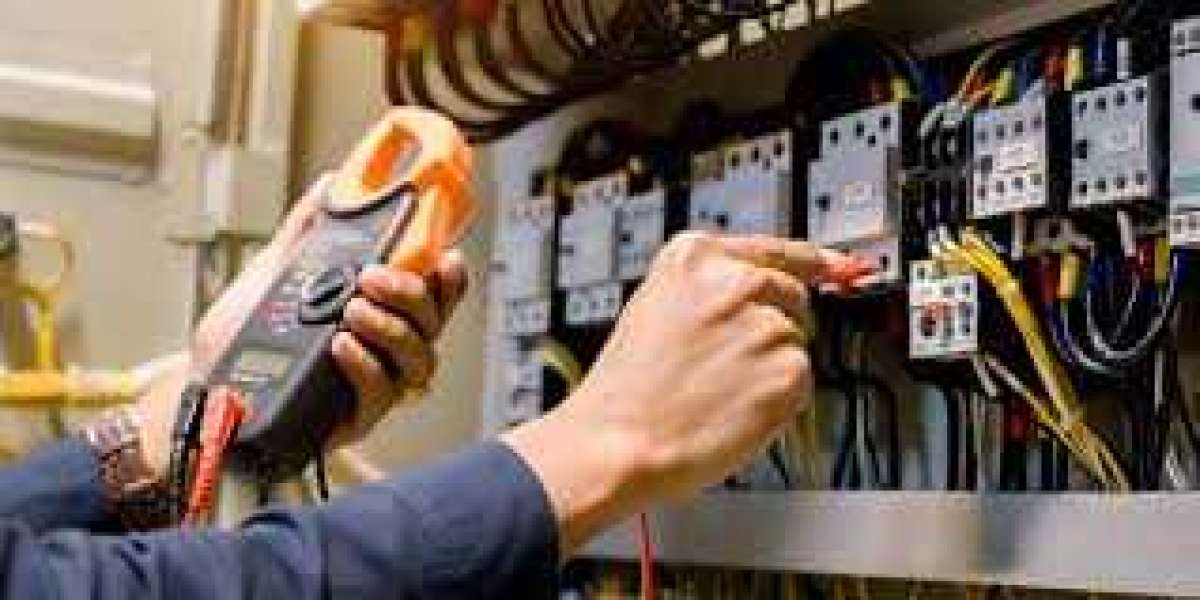Electrical services in the United Kingdom are a fundamental part of modern life, supporting everything from lighting and heating to industrial automation and electric vehicle charging. With increasing demand for energy-efficient solutions, smart technologies, and renewable energy integration, the scope of electrical services in the UK continues to evolve rapidly.
Whether it’s a simple home rewiring project, a commercial lighting upgrade, or a large-scale industrial installation, certified electricians and professional electrical service providers ensure safety, efficiency, and compliance with the UK’s strict regulatory standards.
Types of Electrical Services
Electrical services in the UK cover a broad spectrum of activities, typically divided into residential, commercial, and industrial sectors.
1. Residential Electrical Services
Homeowners rely on electricians for a wide range of services, including:
Rewiring (full or partial)
Consumer unit (fuse box) upgrades
Lighting installation and repair
Socket and switch fitting
Smoke and carbon monoxide alarm installation
Electric vehicle (EV) charger installation
Smart home systems (thermostats, security cameras, lighting controls)
These services are essential for home safety and comfort, and often involve ensuring properties meet modern building and electrical standards.
2. Commercial Electrical Services
Businesses and commercial properties require more complex electrical solutions, including:
Three-phase electrical installations
Emergency lighting systems
Data cabling and networking
Fire alarm and security system installations
Energy-efficient lighting upgrades
Scheduled maintenance contracts
Commercial electricians also help businesses comply with legal responsibilities related to workplace safety and energy use.
3. Industrial Electrical Services
Industrial electrical work typically involves high-voltage systems and custom-built electrical control solutions, such as:
Machine wiring and automation systems
Control panel design and installation
Power distribution systems
Maintenance of manufacturing and processing equipment
Hazardous area installations (ATEX-rated systems)
Industrial electricians often work in factories, warehouses, and energy-intensive facilities requiring rigorous safety protocols.
Regulations and Certification
Electrical work in the UK must comply with stringent safety regulations to ensure both legal compliance and user protection.
Key Standards Include:
BS 7671 Wiring Regulations: The UK’s national standard for electrical installation and safety.
Part P of the Building Regulations: Covers electrical safety in domestic dwellings in England and Wales.
Competent Person Schemes
To carry out most types of electrical work legally, especially in homes, electricians must be registered with a government-approved competent person scheme. Leading certification bodies include:
NICEIC (National Inspection Council for Electrical Installation Contracting)
NAPIT (National Association of Professional Inspectors and Testers)
ELECSA
These bodies ensure electricians are qualified, insured, and regularly assessed.
Inspection and Testing Services
Routine electrical testing is vital to ensure systems remain safe and effective. Common types of inspections include:
EICR (Electrical Installation Condition Report): A legal requirement for landlords and highly recommended for property buyers.
PAT Testing (Portable Appliance Testing): Required for businesses to ensure portable devices are safe to use.
Thermal Imaging: Used in commercial and industrial settings to detect faults before they cause serious problems.
These services help prevent accidents, reduce fire risks, and maintain system efficiency.
Smart and Sustainable Solutions
Modern electrical services are increasingly focused on sustainability, efficiency, and smart technology integration. Key trends include:
LED lighting upgrades for energy savings
Smart meters and home automation systems
Solar PV and battery storage installations
EV charging point installation for homes and businesses
Load balancing and energy monitoring systems
These advancements allow consumers and businesses to lower energy costs, reduce carbon footprints, and enhance overall energy management.
Emergency and 24/7 Services
Electrical faults can pose immediate safety hazards. That’s why many electricians offer emergency call-out services across the UK. Common emergencies include:
Power outages
Burning smells or sparks
Tripped circuits that won’t reset
Water damage to electrical systems
Emergency electricians are trained to quickly identify and resolve issues to prevent harm and minimize disruption.
Choosing the Right Electrical Service Provider
When hiring an electrician in the UK, it’s important to:
Verify that they are certified and insured
Check for registration with a competent person scheme
Read customer reviews and testimonials
Request a written quote before work begins
Ensure they provide a guarantee or warranty
Using a reputable service provider ensures that all work is carried out safely, legally, and to a high standard.
Conclusion
Electrical services in the UK are vital for supporting the modern lifestyle and infrastructure we rely on. From small residential repairs to major commercial and industrial projects, professional electricians keep the nation running safely and efficiently. As technology evolves and the UK moves toward a more sustainable future, the demand for innovative, energy-efficient electrical solutions will only continue to grow.
Whether you're a homeowner, a business owner, or a facilities manager, partnering with a qualified electrical service provider is essential for powering the future securely and sustainably.








